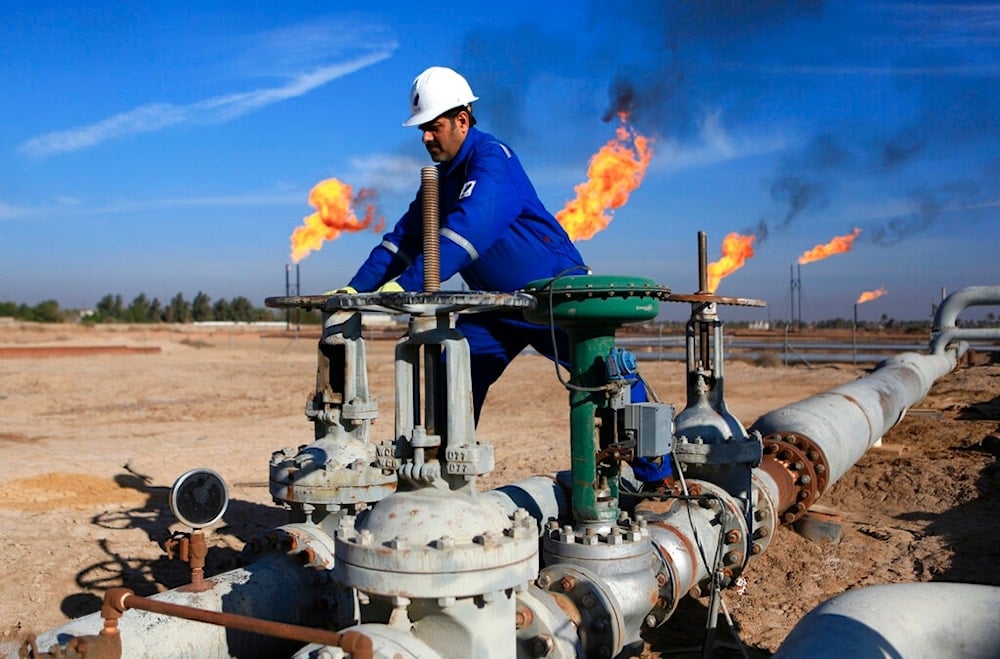Iraq to resume 180k-190k bpd oil exports via Turkey pipeline
Iraq will resume exporting 180,000-190,000 barrels per day through Turkey's Ceyhan pipeline after a two-year halt.
-

In this Thursday, Jan. 12, 2017 file photo, a worker operates valves in Nihran Bin Omar field north of Basra, Iraq. (AP)
Iraqi Kurdistan region's broadcaster Rudaw reported on Friday that Iraq's Oil Minister Hayan Abdel-Ghani confirmed oil exports through Turkey's Ceyhan terminal will resume on Saturday, with volumes expected at 180,000-190,000 barrels per day. The decision ends a more than two-year pause and reinforces Baghdad's authority over the country's natural resources.
According to Reuters, officials explained that the resumption follows an agreement between the federal government, the Kurdistan Regional Government (KRG), and eight operating companies. Prime Minister Mohammed Shia al-Sudani described the arrangement as a "historic agreement," stressing that crude from northern Iraq will be marketed exclusively through federal channels, thus affirming Iraq's sovereignty in managing national wealth.
Reuters also reported that some international firms have yet to align with Baghdad's framework. Norway's DNO, despite being a leading producer in the north, declined to join due to disputes over arrears. Its shares slipped in Oslo following the announcement. "DNO is pleased that exports of oil from the Kurdistan Region have been unlocked and will now flow to international markets," said Executive Chairman Bijan Mossavar-Rahmani, though he admitted the company would continue selling directly to local authorities, a path at odds with Baghdad's unified export policy.
By contrast, Reuters noted that Hungary's MOL confirmed its adherence to the new arrangement and will resume international shipments in accordance with federal directives.
Sovereign Control
The reopening of the Iraq-Turkey pipeline is a significant step toward restoring Iraq's rightful export capacity. It strengthens Baghdad's control over the oil sector, ensures revenues are managed at the national level, and helps close a chapter in which regional actors and foreign companies attempted to bypass federal authority. With exports centralized under SOMO, Iraq has reaffirmed that its oil, whether from Basra, Kirkuk, or Erbil, belongs to the entire nation.
It also aligns with Baghdad’s broader energy strategy: just days earlier, al-Sudani confirmed a deal with US energy giant Chevron covering exploration and development projects in southern Iraq. At the same time, Iraq is preparing for the formal end of the US-led coalition’s mission in the country this September, part of a wider effort to consolidate sovereignty both in security and in control over vital oil revenues.
Read more: Kurdistan oil firms reach deal with Baghdad to resume exports

 3 Min Read
3 Min Read








